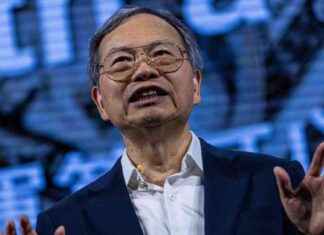Go back and watch the Boston Celtics’ introductory news conferences for both rookie Jaylen Brown and free-agent signing Al Horford this past summer. You’ll catch a few buzzwords when president of basketball operations Danny Ainge and coach Brad Stevens talk about their additions, including “character” and “work ethic.”
The Celtics, maybe as much as any team in the league, have put a premium on bringing in players who not only positively impact winning but subscribe to a set of core values that puts team success above all else.
As Boston fans ponder why the Celtics weren’t willing or able to trump the mediocre return that the Sacramento Kings got in exchange for sending All-Star big man DeMarcus Cousins to the New Orleans Pelicans, it’s prudent to remember the type of player the Celtics have sought while trying to build a sustainable contender.
This is not to say character is the only reason the Celtics might have balked at the idea of Cousins. The price tag (likely much higher than what New Orleans ultimately sacrificed), Cousins’ future uncertainty (no guarantee of an extension after next season), and Boston’s desire to maximize the assets it has worked so tirelessly to accumulate also would be considered in any decision.
Still, Sacramento’s return will be tough for some Celtics fans to stomach, especially when they have often been sold how Boston was positioned to strike if and when an elite-level talent became available at a reasonable price. And it’s fair to wonder whether Stevens could have harnessed Cousins’ talents and kept him on a path that eliminated the head-shaking outbursts that punctuated his Kings tenure.
But a couple of things to keep in mind while digesting the Cousins deal:
• The Celtics are incredibly high on Brown, who would presumably fill the Buddy Hield role in any Boston trade scenario. Not only is Brown already playing a rotation role at age 20, but the Celtics believe he has the potential to develop into an elite wing (and being on a rookie deal, he’s under the team’s long-term control). When asked about trade rumors at All-Star Weekend, it was notable how Stevens invoked Brown’s name while suggesting the team is OK with continuing this slow build.
“I think that Danny would second this, hey, those picks — and speaking of Jaylen Brown being the third pick this year and whatever happens with our next few years — those are really important to continue to build a long-term, sustainable competitive team,” Stevens said. “And if you’re able to do that enough and if you’re able to be in it enough, hopefully you get your shots at [being a legitimate contender].”
• If the Kings desired to acquire a 2017 pick, the Celtics have only the Nets’ first-round selection via swap this year. There’s a big difference between New Orleans trading a pick that’s not only top-3 protected but likely to be a midround selection than dealing a pick that currently holds a 25 percent chance of being No. 1 and a 64.3 percent chance of being in the top three. Sure, there’s uncertainty with exactly how that pick will ultimately pan out, but it’s another young player under the team’s long-term control.
Both Ainge and Stevens have said repeatedly during this building process that their desire is to build a sustainable championship contender. Every decision the team makes before Thursday’s deadline should ultimately hinge on whether it’s worth sacrificing prime assets to aid a playoff charge that’s already incredibly daunting when you consider the roadblocks like the possibility of a healthy and engaged Cavaliers team in the postseason and the ultra-motivated Golden State juggernaut out west.
It’s difficult to be patient, especially after the Celtics have surged to the No. 2 spot in the Eastern Conference. But Boston’s front office should envision a summer in which it not only lands one of the top picks in what is viewed as a talent-heavy draft, but also has the necessary cap space to chase that elusive third star to pair with Isaiah Thomas and Al Horford. All while Boston’s young and improving core remains on team-friendly deals.
So the Celtics have put themselves in a position to be incredibly choosy with the player they target moving forward. Maybe a must-have star shakes free before Thursday’s deadline and the Celtics deem it necessary to sacrifice some of their pick stash to beat the free-agent rush. Maybe Boston can aid its short-term outlook by moving some of its less-valuable picks to patch areas of weakness on this year’s team without sacrificing its long-term flexibility.
Making a move for Cousins would have locked the Celtics into one particular path, one that could have accelerated their drive toward a title, but also had plenty of potential potholes.
The Celtics are going to have to endure some risks to get where they want to go. There is always the chance that not jumping into the Cousins sweepstakes will seem like a missed opportunity down the road.
For now, the Celtics seem committed to their vision: Building a team in which everyone on board the Celtics express is working toward the same championship goal, no matter how long it takes to get there.
Our editors found this article on this site using Google and regenerated it for our readers.





